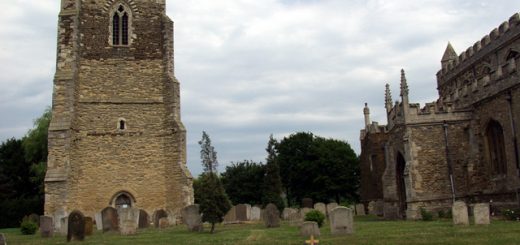Why The Wren Flies Close To The Earth
ONE day when the birds were all together, one of them said, “I have been watching men, and I saw that they had a king. Let us too have a king.”
“Oh, I do not know, but men have one.”
“Which bird shall it be? How shall we choose a king?”
“Let us choose the bird that flies farthest,” said one.
“No, the bird that flies most swiftly.”
“The most beautiful bird.”
“The bird that sings best.”
“The strongest bird.”
The owl sat a little way off on a great oak-tree. He said nothing, but he looked so wise that all the birds cried, “Let us ask the owl to choose for us.”
“The bird that flies highest should be our king,” said the owl with a wiser look than before, and the others said, “Yes, we will choose the bird that flies highest.”
The wren is very small, but she cried even more eagerly than the others, “Let us choose the bird that flies highest,” for she said to herself, “They think the owl is wise, but I am wiser than he, and I know which bird can fly highest.”
Then the birds tried their wings. They flew high, high up above the earth, but one by one they had to come back to their homes. It was soon seen which could fly highest, for when all the others had come back, there was the eagle rising higher and higher.
“The eagle is our king,” cried the birds on the earth, and the eagle gave a loud cry of happiness. But look! A little bird had been hidden in the feathers on the eagle’s back, and when the eagle had gone as high as he could, the wren flew up from his back still higher.
“Now which bird is king?” cried the wren. “The one that flew highest should be king, and I flew highest.”
The eagle was angry, but not a word did he say, and the two birds came down to the earth together.
“I am the king,” said the wren, “for I flew higher than the eagle.” The other birds did not know which of the two to choose. At last they went to the oak-tree and asked the owl. He looked to the east, the west, the south, and the north, and then he said, “The wren did not fly at all, for she was carried on the eagle’s back. The eagle is king, for he not only flew highest, but carried the wren on his back.”
“Good, good!” cried the other birds. “The owl is the wisest bird that flies. We will do as he says, and the eagle shall be our king.” The wren crept away. She thought she was wise before, but now she is really wise, for she always flies close to the earth, and never tries to do what she cannot.
[The Book Of Nature Nature Myths by Florence Holbrook, 1904]

![Dibyendu Ash [CC BY-SA 3.0 (https://creativecommons.org/licenses/by-sa/3.0)], via Wikimedia Commons](http://www.mysteriousbritain.co.uk/wp/wp-content/uploads/2019/01/Eurasian_Wren_Pangolakha_Wildlife_Sanctuary_East_Sikkim_India_20.10.2015-300x200.jpg)



Sir James George Frazer, in The Golden Bough (1922) states ‘By many European peoples—the ancient Greeks and Romans, the modern Italians, Spaniards, French, Germans, Dutch, Danes, Swedes, English, and Welsh—the wren has been designated the king, the little king, the king of birds, the hedge king, and so forth, and has been reckoned amongst those birds which it is extremely unlucky to kill. In England it is supposed that if any one kills a wren or harries its nest, he will infallibly break a bone or meet with some dreadful misfortune within the year; sometimes it is thought that the cows will give bloody milk. In Scotland the wren is called “the Lady of Heaven’s hen,” and boys say:
“Malisons, malisons, mair than ten,
That harry the Ladye of Heaven’s hen!”
At Saint Donan, in Brittany, people believe that if children touch the young wrens in the nest, they will suffer from the fire of St. Lawrence, that is, from pimples on the face, legs, and so on. In other parts of France it is thought that if a person kills a wren or harries its nest, his house will be struck by lightning, or that the fingers with which he did the deed will shrivel up and drop off, or at least be maimed, or that his cattle will suffer in their feet.